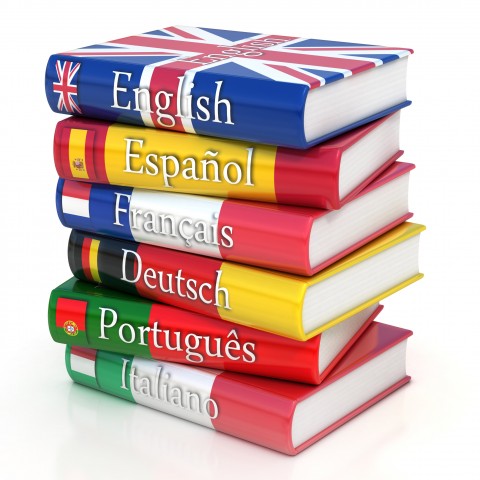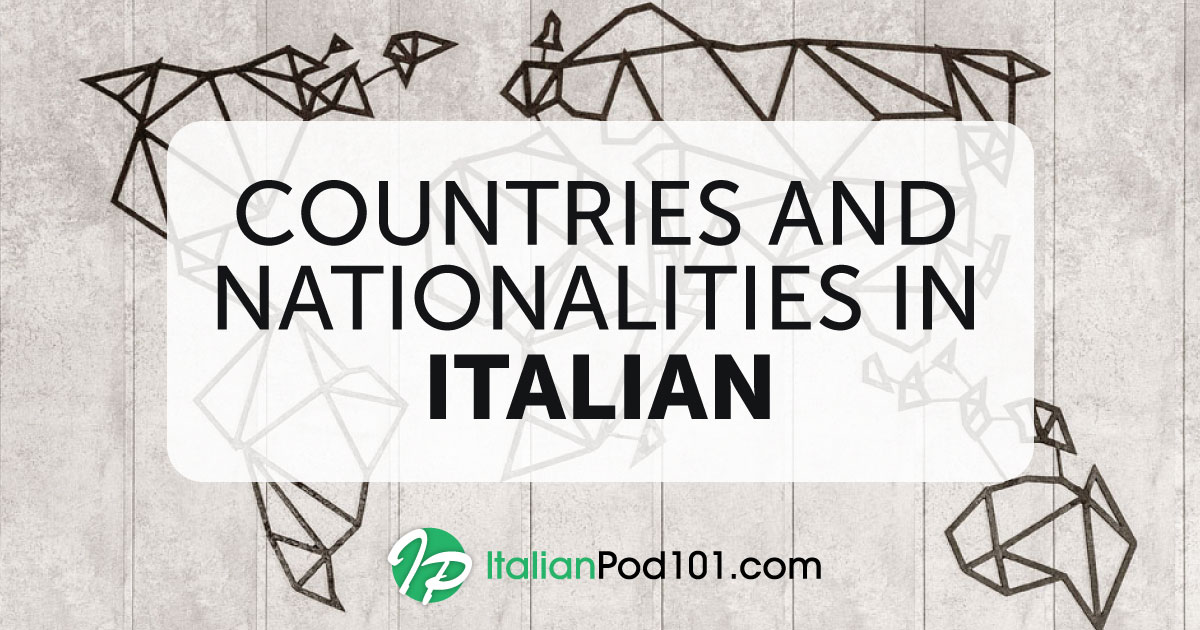
Conversation isn’t a one way street. Hopefully, it is more like a tennis match: you ask something, get an answer and ask another question, you answer and ask something else, and so on. Questions are the fundamental building blocks to getting to know someone, establishing common ground, finding out something new or interesting and, simply, getting the flow of conversation going.
Questions in Italian follow no particular pattern—no word order inversion, and no adding of extra words. You simply change your intonation and make it sound like a question. For example,
- Sei matto! (“You are crazy!”)
Sei matto? (“Are you crazy?”)
Just a little change in the punctuation (and in the intonation) here makes all the difference.
And then, of course, you have some typical Italian gestures that underline and strengthen the emphasis on the question.
In this guide, you’ll learn all the basic questions in Italian, the question words, and how to ask questions about the most common topics with lots of useful examples. So, let’s start learning how to ask questions in Italian and how to answer them!
 Table of Contents
Table of Contents
1 – Basic Italian Question Words
Let’s start with the main interrogative pronouns. These are short but very important words that serve to introduce questions (direct or indirect). They are mostly static words (that do not need to be changed) and can substitute things or people.
| Cosa Che (“What?”) | Cosa/Che facciamo stasera? (“What are we doing tonight?”) |
| Cosa and Che mean exactly the same thing as interrogatve pronouns. But note that cosa literally means “thing” and it’s a very useful word to use when you forget the word for something… | |
| Chi (“Who”) | Chi ha mangiato la marmellata? (“Who ate the jam?”) |
| Come (“How”) | Come ti chiami? (“What’s your name?”) |
| Quale/i (“What/Which”) | Quale preferisci? (“Which one do you prefer?”) |
| Quanto/a/i/e (“How many,” “How much”) | Quanti gatti hai? (“How many cats do you have?”) |
| Dove (“Where”) | Dov’è la fermata del tram? (“Where is the tramway stop?”) |
| Quando (“When”) | Quando torni in Italia? (“When do you come back to Italy?”) |
| Perché (“Why”) | Perché non mi rispondi? (“Why don’t you answer me?) |
| Perché means both “why” and “because”: Perché non mi rispondi? Perché non voglio! (“Why don’t you answer me? Because I don’t want to!”) | |
- ➜ Do you want more examples of common Italian questions, starting from… Dov’è il bagno? (“Where is the bathroom?”) then make sure you check out our free list of The Top 15 Questions You Should Know for Conversations on ItalianPod101.com.

We have so many questions…
2 – The Eight Most Common Question Topics
In this section, we are going to list all the most common topics that might come up in a conversation, and we will give you examples of the most typical questions (and answers) in Italian.
For each topic, you’ll find examples of possible answers so that you can start imagining how you would deal with it yourself. A good exercise is to try and come up with answers of your own, using the vocabulary and structures you’ll learn today.

1 – What’s Your Name & Personal Questions
The first questions that you want to ask and answer are probably going to be personal questions when you are first introduced to someone. You might also want to know how to spell someone’s name and their age. However, asking for someone’s age might be a sensitive topic for some people…
- Come ti chiami? (“What is your name?”)
► Mi chiamo / Sono Beatrice. (“My name is / I am Beatrice”) - Come si scrive il tuo nome? (“How to spell your name?”)
► Ti faccio lo spelling. (“I’ll spell it for you.”)
► Attenzione, devi mettere l’acca. (“Attention, you have to put the H.”)
► Si scrive con la doppia T. (“You spell it with a double T.”)
Italians don’t usually need to ask for word spelling, as in Italian every single letter is clearly pronounced and so it is immediately clear what the exact spelling is. For a foreigner, the most complicated Italian sounds to recognize are a few diphthongs (combination of letters) such as CI vs. CHI (the sounds tch vs. ki), SCI (the sound sh), GI vs. GHI (the sounds dj vs. hard G as in “give”) and—of course—double consonants.
- Come si pronuncia il tuo nome? (“How do you pronounce your name?”)
► Si pronuncia … (“It is pronounced …”)
- Come ti chiami di cognome? (“What’s your last name?”)
- Quanti anni hai? (“How old are you?”)
► Ho 27 anni. (“I’m 27.”)
- ➜ For more vocabulary and sentence structures, make sure to visit our complete guide on How to Introduce Yourself!

Quanti anni hai? (“How old are you?”)
2 – Where Are You From?
Next up, let’s look at a very common topic in conversation among foreigners: questions about origin and whereabouts:
- Di dove sei? (“Where are you from?”)
► Sono americano/spagnolo/portoghese. (“I’m American/Spanish/Portuguese.”)
- Di che paese sei? (“What country are you from?”)
► Francia. (“France.”) - Di che città sei?
► Sono di Palermo. (“I am/come from Palermo.”) - Da dove vieni? (“Where do you come from?”)
► Vengo da New York / dal Brasile. (“I come from New York / from Brazil.”)
- Dov’è il tuo paese? Dove si trova il tuo paese? (“Where is your country? Where is your country located?”)
► Il mio paese si trova in Asia / nel sud America. (“My country is located in Asia / South America.”) - Qual è la tua nazionalità? (“What is your nationality?”)
► Ho la nazionalità americana/spagnola/portoghese. (“I have American/Spanish/Portuguese nationality.”)
- Sei stato in / a? (“Have you ever been to?”)
The use of prepositions is not necessarily similar in different languages. Remember that, in Italian, we use in to talk about being in or going to a country >> Sono, vado in Italia. (“I am in / I go to Italy.”) while we use a to talk about being in or going to a city >> Sono, vado a Roma. (“I am in / I go to Rome.”) - Hai visitato la Toscana? (“Have you visited Tuscany?”)
► No, ma voglio andarci l’anno prossimo. (“No, but I want to go next year.”) - Sei mai stato in Cina? (“Have you ever been to China ?”)
► Ci sono stato tre anni fa. (“I was there three years ago.”) - Sei già stato a Roma? (“Have you already been to Rome?”)
► Certo! È la mia città preferita. (“Of course! It is my favorite city.”) - Conosci il Giappone? (“Do you know Japan?”)
- ➜ For more country names in Italian, check out our free vocabulary list on ItalianPod101.com.
3- Do You Speak…?
If you are travelling, or living, working, or studying abroad, one of the very first questions will be about the languages spoken, and whether people speak English. This conversation will also let you learn important information on where and how to study languages.

Parlo 6 lingue. (“I speak six languages.”)
- Parli (bene) l’italiano? (“Do you speak Italian (well)?”)
► Parlo bene l’italiano. (“I speak Italian well.”)
► Parlo un poco il francese. (“I speak a little French.”)
► Sono fluente. (“I am fluent.”)
► Così così. (“So-so.”)
► Solo qualche parola. (“Only a few words.”)
- Che lingua si parla nel tuo paese? (“What language is spoken in your country?”)
► In Tunisia, si parla arabo e francese. (“In Tunisia, we speak Arabic and French.”) - Quante lingue parli? (“How many languages do you speak?”)
- È difficile imparare il [ ]? (“Is it difficult to learn [ ]?”)
► Un po’, soprattutto la grammatica. (“A little, especially the grammar.”)
► È facile! Io ho imparato con ItalianPod101. (“It’s easy! I learned with ItalianPod101.”)
- Da quanto tempo studi l’italiano? (“How long have you studied Italian?”)
► Da due anni. (“Two years.”)
► Ho cominciato due anni fa. (“I started two years ago.”)
► L’ho studiato per tre anni. (“I studied it for three years.”)
- Dove hai studiato l’italiano? (“Where did you study Italian?”)
► Ho studiato italiano all’università / in una scuola di lingue / con l’app ItalianPod101!
(“I studied Italian at the university / in a language school / with the ItalianPod101 app!”) - Quando hai imparato a parlare l’italiano? (“When did you learn to speak Italian?”)
► Ho imparato da piccola. (“I learned when I was a kid.”)

4 – Do You Like… ?
You can learn a lot from people, just by asking what they like and listening to their answers. In order to do that, you first might want to practice the particular construction of the Italian verb mi piace (“I like”). It is an impersonal verb that literally translates to “it pleases me”. So you have to remember to change the verb, depending on what you like.
- Mi piace la pizza. (singular, “I like pizza.”)
Mi piacciono gli spaghetti. (plural, “I like spaghetti.”)
- Ti piace Roma? (“Do you like Rome?”)
►Mi piace, anche se è un po’ caotica. (“I like it, even if it’s a bit chaotic.”) - Come ti sembra Milano? (“How do you like Milan?”)
►La trovo bella e dinamica. (“I find it beautiful and dynamic.”) - Preferisci la birra o il vino con la pizza? (“Do you prefer beer or wine with pizza?”)
►Preferisco la birra con la pizza e il vino con gli spaghetti. (“I prefer beer with pizza and wine with spaghetti.”)
- Ti piace la cucina italiana? (“Do you like Italian food?”)
►Tantissimo. Mi fa impazzire! (“A lot. It drives me crazy!”) - Ti piacciono le spiagge italiane? (“Do you like Italian beaches”)
►Moltissimo, e adoro le isole! (“A lot, and I love the islands!”)
- Ti piacciono le canzoni napoletane? (“Do you like Neapolitan songs?”)
►Sono belle, ma non capisco le parole… (“They’re beautiful, but I don’t understand the words … “)

Cosa preferisci? (“What do you prefer?”)
5 – What Do You Do?
Nowadays, we tend to identify ourselves and other people with the professional activity. It might not be the best way, but it is what it is…
People’s jobs and professions are an important part of their life, so it is natural to ask about it. Just remember that, in Italy, you are not supposed to ask about money and people’s salary.
- Che cosa fai? (“What do you do?”)
- Di che cosa ti occupi? (“What is your occupation/activity?”)
► Sono medico. (“I’m a doctor.”)
Notice how in Italian you don’t normally put the article before your occupation:
Sono medico. (“I’m a doctor.”)
Sono professoressa di italiano. (“I’m an Italian teacher.”)
Sono giornalista sportivo. (“I’m a sport reporter.”) ► Mi occupo di progetti multimediali. (“I manage multimedia projects.”)
► Faccio l’insegnante. (“I am a teacher.”)
- Che cosa studi? (“What do you study?”)
► Studio musica barocca. (“I study baroque music.”) - Qual è la tua specializzazione? (“What is your major? / What do you specialize in?”)
► Mi sto specializzando in biologia marina. (“I am specializing in marine biology.”) - Quale sarà il tuo prossimo progetto? (“What will be your next project?”)
► Ho in programma di scrivere un blog sulla lingua italiana. (“I plan to write a blog about the Italian language.”)
- ➜ If you want to know other names of professions in Italian, don’t miss our free vocabulary list on Jobs.
6 – What Do You Like to Do in Your Free Time?
Sure, asking about jobs and careers might be interesting… but the real fun questions and answers are in people’s hobbies and activities during their free time.
Finding out what others do will help you find common ground and common interests. So, let’s start asking the really important questions.
- Cosa fai nel fine settimana? (“What do you do in the weekends?”)
- Come passi il tempo libero? (“How do you spend your free time?”)
► Mi piace andare al cinema / leggere / giocare ai videogiochi. (“I like going to the movies / reading / playing video games.”)
► Preferisco passare del tempo con i miei bambini. (“I prefer spending time with my kids.”) - Hai qualche hobby? (“Do you have any hobbies?”)
► Colleziono / faccio la collezione di farfalle e francobolli. (“I collect butterflies and stamps.”) - Qual è il tuo hobby preferito? (“What’s your favorite hobby?”)
► Mi piace fare composizioni floreali. È molto rilassante. (“I like making flower arrangements. It is very relaxing.”) - Fai / Pratichi sport? (“Do you practice any sports?”)
- Che sport fai / pratichi? (“What sports do you do?”)
► Faccio sport estremi. (“I do extreme sports.”)
► Vado in palestra tutti i giorni. (“I go to the gym every day.”)
► Sono pigro/a, non faccio molto sport. (“I am lazy, I don’t play any sports.”) - Che tipo di [musica / libri / film / serie] preferisci? (“What kind of [music / books / movies / series] do you prefer?”)
► Mi piacciono i romanzi storici. (“I like historical novels.”)
► Adoro le serie coreane. (“I love Korean series.”)
► Il mio genere preferito è il jazz, e il tuo? (“My favorite music is jazz, and yours?”) - Chi è il tuo artista / scrittore / attore / musicista preferito/a? (“Who is your favorite artist / writer / actor / musician?”)
► Mi piacciono gli artisti contemporanei, ma non sopporto l’arte astratta. (“I like contemporary artists, but I can’t stand abstract art.”)
► Ascolto ogni genere di musica, ma il mio musicista preferito è… (“I listen to all kinds of music, but my favorite musician is…”) - Che [libro / film / serie] mi consigli? (“What [book / movie / series] do you suggest?”)
► Ho appena visto… Te lo consiglio. (“I just watched… I recommend it.”)
► Hai visto l’ultimo [film / serie] di…? È bellissimo/a! (“Have you seen the latest [film / series] of …? It’s beautiful!”)

Cosa fai nel tempo libero? (“What do you do in your free time?”)
7 – What’s Wrong?
Sometimes things get complicated, and not all questions can be about fun and travel. An important role of friends is to understand if something is not right, and asking about it might be the first step to finding a solution to the problem or simply a way to make the other person feel better.
- Che / Cosa c’è? (“What’s up?/What’s wrong?”)
- Che / Cosa succede? (“What happens?/What’s the matter?”)
- Ci sono problemi? (“Any problems?”)
- Qualcosa non va? (“Something wrong?”)
► Va tutto bene. (“Everything is fine.”)
► Ho un problema, possiamo parlare? (“I have a problem, can we talk?”)
► È tutto a posto. (“It’s all right.”)
8 – How Much Is It?
And last but not least, here is a list of very useful questions, especially if you are going around markets and mercatini and want to buy or bargain with someone.
- Quanto costa? (“How much does it cost?”)
- Quant’è? (“How much is it?”)
- Quanto viene al chilo / litro? (“How much is it per kilo / liter?”)
- Posso avere uno sconto? (“Can I get a discount? “)
► Costa … euro. (“It costs … euros.”)
► È … euro. (“It’s … euros.”)
► Viene … euro al chilo / litro. (“It’s … per kilo / per liter.”)
► È caro. Costa troppo. (“It’s expensive. It costs too much.”)
► È economico. Costa poco. (“It’s cheap. It doesn’t cost much.”)
► È conveniente. (“It’s convenient.”)
► Vale la pena. (“It’s worth it.”)
► È già scontato. Non posso fare un ulteriore sconto. (“It’s already discounted. I can’t apply more of a discount.”)
- ➜ Interested in knowing more words to go shopping in a supermarket? Check out our free vocabulary lists on ItalianPod101.com.
3. Conclusion
In this guide, you’ve learned the most common questions in Italian, from the question words to the most common topics, and now you are ready for any type of conversation with friends and colleagues.
Did we forget any important topic you’d like to learn about? Do you feel ready to get out there and express yourself using everything you’ve learned today?
A good way to practice is to take each of the questions we’ve covered today and imagine how you would answer them. Maybe you’ll need to do some research on the sentence structures or key words, but it will be a great way to learn how to talk about yourself.
Learning how to talk about personal topics is always worth the time, as you can use this knowledge in any situation, with your friends or people you’ve just met.
Make sure to explore ItalianPod101, as we have plenty of free resources to help you practice your grammar and learn new words. Our vocabulary lists are also useful for revisiting new words and practicing their pronunciation.
Remember that you can also use our premium service, MyTeacher, to get personal one-on-one coaching. Practice questions and answers in Italian with your private teacher so they can give you personalized feedback and advice, and help you with the pronunciation.
About the Author: Jessica Barbagallo grew up on the sunny island of Sicily, in the south of Italy. She has lived in Florence, Milan, New York, Vancouver, Rio de Janeiro, and São Paulo. After a career in digital marketing, she went back to what is most fun to her: teaching languages!










